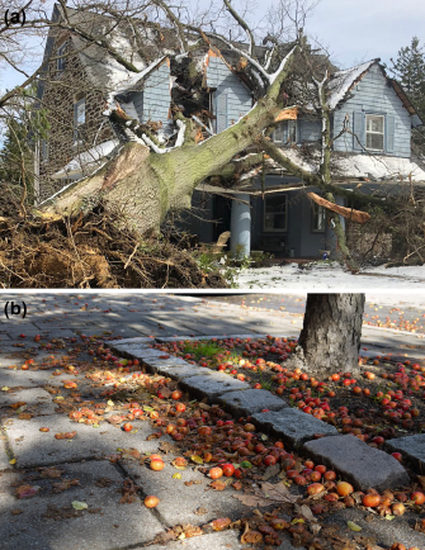
Article
Beyond ‘trees are good’: Disservices, management costs, and tradeoffs in urban forestry
Ambio
(2020)
Abstract
The provision of ecosystem services is a prominent rationale for urban greening, and there is a prevailing mantra that ‘trees are good’. However, understanding how urban trees contribute to sustainability must also consider disservices. In this perspective article, we discuss recent research on ecosystem disservices of urban trees, including infrastructure conflicts, health and safety impacts, aesthetic issues, and environmentally detrimental consequences, as well as management costs related to ecological disturbances and risk management. We also discuss tradeoffs regarding species selection and local conservation concerns, as well as the central role of human perception in the interpretation of ecosystem services and disservices, particularly the uncritical assertion that ‘everybody loves trees’. Urban forestry decision-making that fails to account for disservices can have unintended negative consequences for communities. Further research is needed regarding life cycle assessments, stakeholder decision-making, return-on-investment, and framings of services and disservices in urban forestry.
Keywords
- ecosystem disservices,
- green infrastructure,
- tradeoffs,
- ecosystem services,
- nature-based solutions,
- urban sustainability,
- urban ecosystems
Disciplines
Publication Date
Summer October 4, 2020
DOI
https://doi.org/10.1007/s13280-020-01396-8
Citation Information
Roman, L.A., Conway, T.M., Eisenman, T.S. et al. Beyond ‘trees are good’: Disservices, management costs, and tradeoffs in urban forestry. Ambio (2020). https://doi-org.silk.library.umass.edu/10.1007/s13280-020-01396-8
